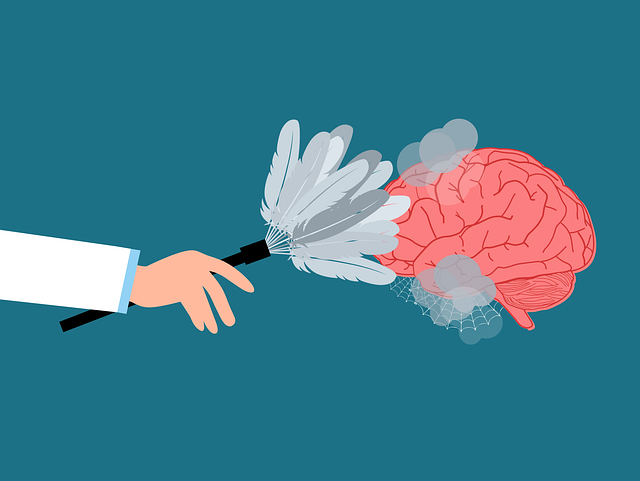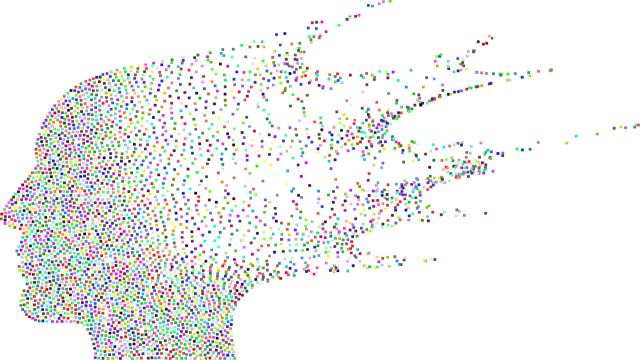Understanding and addressing mental health issues in young adults with Oppositional Defiance Disorder (ODD) requires a multi-faceted approach. This involves using structured assessment tools, self-reporting measures, and clinical interviews to gather data on symptoms like arguments, defiance, and anger management. Quantitative analysis of this data helps identify effective interventions through statistical patterns, while qualitative interpretation of therapy sessions offers deeper context. Integrating diverse data sources allows for personalized therapy targeting specific ODD symptoms, promoting emotional well-being. Structured assessments track symptom improvements, aiding in policy analysis, funding allocation, and clinical practice guidance to enhance therapeutic outcomes for young adults with ODD.
Mental health data analysis plays a pivotal role in understanding and improving outcomes for youth, especially those struggling with Oppositional Defiant Disorder (ODD). This article explores various facets of ODD treatment through advanced data techniques. We delve into the collection, quantitative analysis, and qualitative interpretation of mental health data, offering insights that guide personalized therapy strategies. By integrating these approaches, we aim to enhance the success of intervention programs for young adults with ODD, ensuring more effective and tailored therapy.
- Understanding Mental Health Data Collection for Young Adults with Oppositional Defiant Disorder (ODD)
- The Role of Quantitative Analysis in ODD Treatment Outcomes
- Qualitative Interpretation: Unlocking Insights from Client Narratives
- Integrating Data to Personalize Therapy Strategies for Youth with ODD
- Measuring Success and Evaluating the Efficacy of Intervention Programs
Understanding Mental Health Data Collection for Young Adults with Oppositional Defiant Disorder (ODD)

Understanding the data collection process is a crucial step in addressing mental health issues among young adults with Oppositional Defiant Disorder (ODD). This involves gathering comprehensive information to accurately assess their unique challenges and treatment needs. The first step is to implement structured assessment tools tailored for ODD, which can include interviews, questionnaires, and standardized measures. These tools help identify key symptoms, such as frequent arguments with authority figures, active defiance, and anger management issues. By collecting data on the severity and frequency of these behaviors, healthcare professionals gain valuable insights into the individual’s daily functioning and potential triggers.
Additionally, integrating self-reporting measures alongside clinical assessments is essential for young adults seeking therapy. Encouraging open communication allows them to share their perspectives on emotional regulation struggles and self-esteem issues—common challenges associated with ODD. This two-pronged approach to data collection enables mental wellness coaching programs focused on development and improvement. Through a holistic understanding of the individual’s mental health landscape, therapists can design targeted interventions, ultimately enhancing their ability to provide effective therapy for young adults with ODD.
The Role of Quantitative Analysis in ODD Treatment Outcomes

The quantitative analysis of mental health data plays a pivotal role in understanding and improving treatment outcomes for conditions like Oppositional Defiance Disorder (ODD) among young adults. By employing statistical methods, researchers can uncover patterns and trends within large datasets, offering valuable insights into what works best in therapy. This approach allows for the identification of effective interventions, enabling healthcare professionals to tailor treatments more precisely to individual needs. For instance, studies analyzing therapy sessions and patient progress can reveal the significance of specific techniques or the impact of certain therapeutic environments on ODD symptoms reduction.
Furthermore, quantitative data analysis facilitates a deeper exploration of the relationship between self-care practices and mental well-being. This includes examining how routines promoting inner strength development and self-awareness exercises influence treatment outcomes for young adults with ODD. By integrating these findings into therapy models, practitioners can empower individuals to actively participate in their healing process, fostering a sense of autonomy and resilience. Such an approach not only complements traditional therapy but also paves the way for long-term mental health management and improved quality of life.
Qualitative Interpretation: Unlocking Insights from Client Narratives

The qualitative interpretation of data derived from client narratives is a powerful tool in mental health analysis, especially when focusing on complex conditions like Oppositional Defiance Disorder (ODD) in young adults. Through meticulous coding and thematic analysis of open-ended responses from therapy sessions, researchers can uncover deeper insights into the lived experiences of individuals struggling with ODD. These narratives provide a window into their emotional healing processes and offer valuable context beyond numerical data.
By delving into the themes that emerge from client stories, mental health professionals can gain a comprehensive understanding of the emotional regulation challenges faced by young adults with ODD. This qualitative approach allows for the identification of recurring patterns, such as anger management issues, difficulty with authority figures, or social isolation, which are crucial in tailoring effective therapy strategies. Moreover, it enables a more nuanced view of mental wellness, going beyond simple diagnosis to capture the complexities and idiosyncrasies of each client’s journey towards emotional healing.
Integrating Data to Personalize Therapy Strategies for Youth with ODD

Integrating data from various sources is a powerful approach to personalize therapy strategies for young adults suffering from Oppositional Defiance Disorder (ODD). By combining insights from behavioral observations, self-reported surveys, and parental feedback, mental health professionals can gain a comprehensive understanding of each individual’s unique challenges. This holistic perspective allows for tailored interventions that address specific ODD symptoms while fostering emotional well-being promotion techniques.
The process involves applying mind over matter principles to help youth develop resilience and coping mechanisms. Through advanced data analysis, therapists can identify patterns in behavior and emotional responses, enabling them to design targeted therapy sessions. Emphasizing emotional intelligence, these sessions aim to enhance self-awareness, improve interpersonal interactions, and teach effective communication strategies. By integrating these evidence-based practices with personalized data insights, the therapeutic outcomes for young adults with ODD can be significantly improved.
Measuring Success and Evaluating the Efficacy of Intervention Programs

Measuring success and evaluating the efficacy of intervention programs is a crucial aspect of mental health data analysis. This process involves quantifying improvements in symptoms, functional abilities, and quality of life among participants. For young adults struggling with Oppositional Defiance Disorder (ODD), therapeutic interventions often include a combination of individual therapy, family counseling, and social skills training. Success can be assessed through structured clinical interviews, standardized assessments, or self-reported measures completed at regular intervals before, during, and after treatment. These tools help track changes in ODD symptoms, such as hostility, argumentativeness, and defiant behavior, allowing therapists to adjust their strategies accordingly.
In the context of mental health policy analysis and advocacy, evaluating intervention programs is essential for securing funding, guiding clinical practice, and shaping public policy. The data gathered from these evaluations can highlight the most effective approaches, such as Social Skills Training or Trauma Support Services, which can then be implemented on a larger scale. By systematically assessing the outcomes of various interventions, mental health professionals can contribute to evidence-based practices that improve outcomes for young adults with ODD and other similar conditions.
Mental health data analysis plays a pivotal role in enhancing our understanding and treatment of conditions like Oppositional Defiant Disorder (ODD) in young adults. By combining quantitative and qualitative methods, professionals can personalize therapy strategies, ensuring better outcomes. Through rigorous data collection and interpretation, we gain valuable insights into the complex nature of ODD, enabling more effective interventions that resonate with the unique needs of each individual. This integrated approach to analyzing mental health data is crucial for improving the success and efficacy of treatment programs for young adults struggling with ODD, ultimately fostering healthier and more resilient lives.












